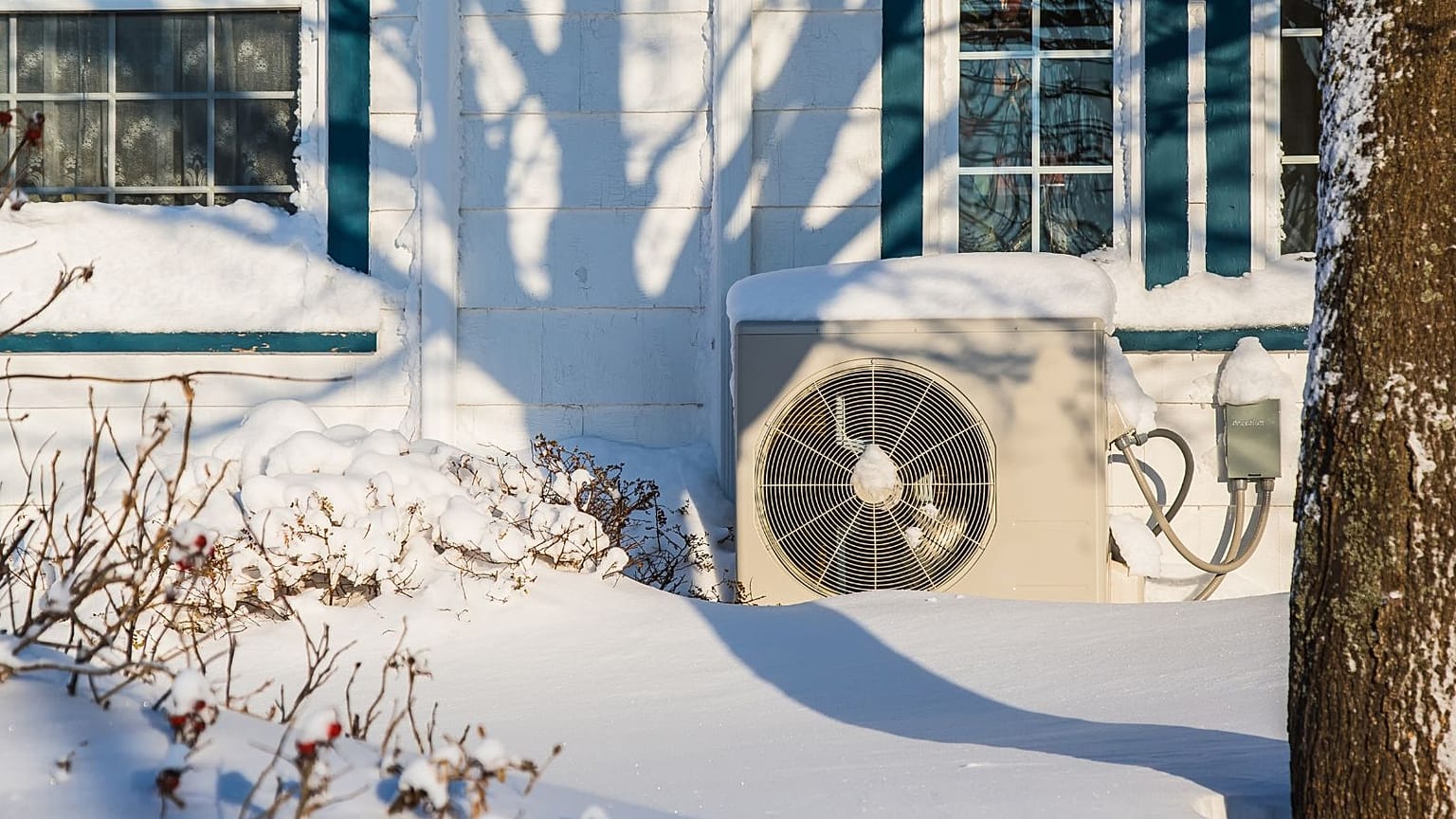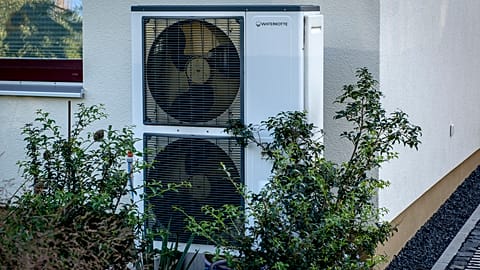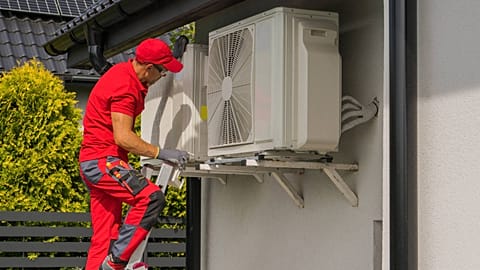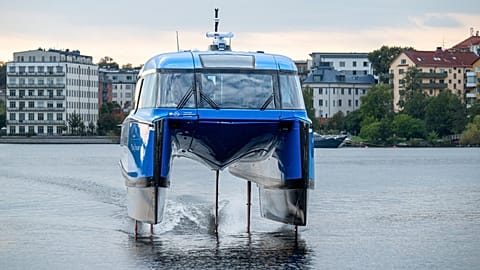Around 24 million heat pumps have been installed in Europe so far - here’s why they work well in different countries and conditions.
Despite a dip in sales last year, heat pumps are continuing to take Europe by storm.
 ADVERTISEMENT
ADVERTISEMENT
 ADVERTISEMENT
ADVERTISEMENT
These devices take energy from the air, ground or water and transform it into heat or cool air. But how, when and where do they work exactly?
Given the urgency of the energy transition, it’s understandable that discussions about which renewable solutions are best can get rather… heated. And chances are you’ll have first encountered heat pumps in a positive or negative light before getting to grips with the basics.
More and more people are embracing the technology. The 24 million heat pumps now installed in Europe are avoiding greenhouse gas emissions equivalent to removing 7.5 million cars from the road.
So if you’re thinking of becoming a heat pump owner too, here are some things you ought to know.
How do heat pumps work?
Air, water and ground heat pumps work by taking energy from these sources and turning it into heat or cold air. They do this within the ‘refrigerant cycle’ - with its four phases of evaporation, compression, condensation and expansion, the European Heat Pump Association (EPHA) explains.
Essentially, the collected heat is used to turn the refrigerant fluid in the pump’s heat exchanger into gas, which is then concentrated to a high pressure in the compressor, prompting a rise in temperature. Extra energy is needed to run this bit of the machinery - ideally from green electricity, which would make the whole process carbon neutral.
The hot and highly pressurised vapour then passes through the second heat exchanger, known as the condenser. This is where the refrigerant discharges heat into the home’s heating system - be it a water-based system like radiators or underfloor heating, or an air conditioning unit.
Releasing its heat returns the refrigerant to a liquid state, which then passes through a pressure-lowering device (the expansion valve) before beginning the cycle all over again.
Heat pumps can be used in homes, offices and in industrial settings. They have the virtue of being very efficient; for every unit of energy that goes in, you get around three units of heat out.
Do heat pumps work in cold climates?
This is one of the main myths about heat pumps. The reality is that the four countries with the largest share of heat pumps - Norway (60 per cent of households), Sweden (43 per cent), Finland (41 per cent) and Estonia (34 per cent) - face some of the coldest winters in Europe.
A recent study found that heat pumps can be successfully installed in countries where winter temperatures rarely fall below -10C, which covers most of the continent. Even approaching -30C, they can still be more efficient than electric heating.
The reason is that in sub-zero temperatures which have us shivering, outside air and water still contain useful amounts of energy. The key measurement here is the ‘coefficient of performance’ (or COP) which is the heat that can be produced for every unit of energy that goes in.
Most homes will find their heat pumps have a COP of three-to-four on a yearly average. They do get less efficient the colder it gets, but studies show that heat pumps can hold their own remarkably well even in cold snaps.
In Finland for example, lab tests on some market-leading heat pumps showed that two models have COPs above two around -20C. And at -30C, COPs are still above one, so can still provide heat.
Ground-source heat pumps might be better in these climates, according to another study, as soil temperatures do not shift so dramatically between seasons (and the equipment doesn’t need to use energy defrosting).
One EPHA award-winning project in Finland combines geothermal energy with heat pump technology to create a moveable system that powers construction sites. The ‘Geolo’ operation in Vantaa is efficient until -30C, and has been used to help build a high school and housing.
Can you install heat pumps in old and existing buildings?
There are around 20 million heat pumps installed in Europe - avoiding 54 megatonnes of CO2, roughly the annual emissions of Greece.
Many people would like to join the heat pump wave, but are unsure if the devices are the right fit for their homes.
One concern is that they won’t work in old buildings. But EPHA says that heat pumps are suitable for any type of building, provided the existing heating or cooling system is compatible.
A government-funded project in the UK has shown they can be installed in homes from every style and era, from Victorian mid-terraces to pre-WWII semis and 1960s blocks of flats.
“Heat pumps powered by clean, renewable energy will be key to warming UK homes in a net zero future,” said Energy and Clean Growth Minister, Lord Callanan.
“This trial demonstrates that low-carbon heating systems are an effective alternative for homes of all types and ages. As technology continues to improve and costs plummet over the next decade, they will become the obvious, affordable choice for consumers.”
Bath Abbey in England shows that even the grandest old building can make space for a heat pump. But the biggest stumbling block for Brits tends not to be planning permission, but cost.
To date, most heat pumps in the UK have been installed in large, off-gas grid homes by well off early adopters, housing developers or social landlords, according to Energy Systems Catapult.
Do heat pumps cost more to run than gas boilers?
There’s no doubt that heat pumps are currently prohibitively expensive for many people.
An air source heat pump costs around £10,000 (€11,500) to buy and install. Average upfront costs are around two to four times higher than gas boilers.
The price of electricity is also more expensive than the price of gas - around three times unit for unit in the UK. Unfortunately this can eat into the efficiency savings from having a pump, but it depends on the energy prices in your country - as this handy calculator from the International Energy Agency (IEA) illustrates.
And the IEA states that heat pumps can save consumers money in the long run, while shielding them from price shocks. Household savings were up to around €840 in Europe, according to a 2022 report.
“With appropriate support for poorer households to manage the upfront costs, heat pumps can meaningfully address energy poverty” it adds.
This depends on national policy decisions, of course, with a range of subsidy offers across Europe.
Do heat pumps only work in well insulated homes?
There are other associated costs with having a heat pump. Since the hot water they produce comes out at lower temperatures than gas boilers, bigger radiators are a plus.
Double glazing and other insulation-tightening features will also help your home to retain more of the heat, which all come at a cost.
But, according to one expert, “houses do not have to be extensively renovated in order to allow for an installation of a heat pump.”
Writing for the science blog of Fraunhofer Institute for Solar Energy Systems (ISE), Marek Miara adds that, the lower the heat losses, the more efficiently a heat pump can operate. So renovation measures to reduce heating energy demand do make sense, as with any other heating system.
Are heat pumps noisy?
Ground source heat pumps don’t make much noise at all.
Air source heat pumps are generally composed of an outdoor and indoor unit. The latter part generally has sound levels between 18 to 30 decibels - around the volume of someone whispering, according to EHPA.
Most outdoor units have a rating of around 60 decibels, which it compares to normal conversation or moderate rainfall.
“Also remember: in the summer when you're out in the garden heat pumps usually don't run as no heating is required,” says Jan Rosenow. The director of the Regulatory Assistance Project (RAP), a clean energy NGO based in the UK, has compiled a helpful thread of false heat pump myths on X, where you can find more fact-checking to assist your energy choices.

















